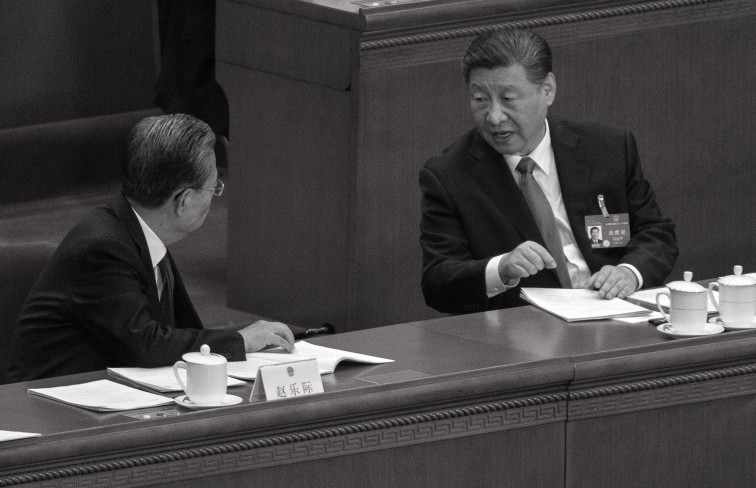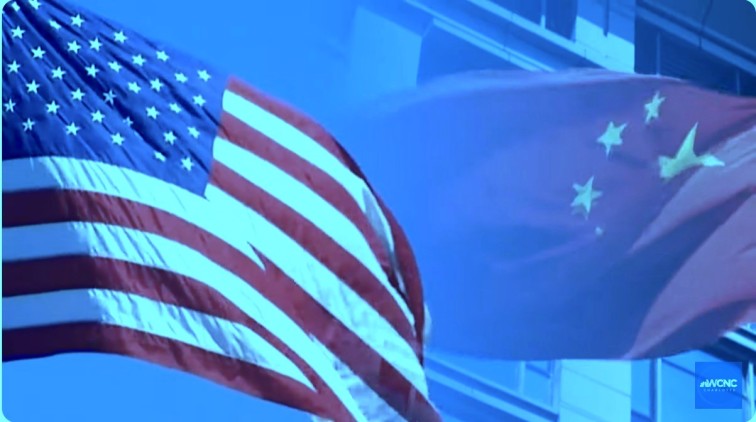Workers transport soil containing rare earth elements for export at a port in Lianyungang
[People News] U.S. Treasury Secretary Scott Bessent stated that Beijing made a “real mistake” by threatening to halt rare earth exports. He emphasized that within one to two years, the United States would secure alternative supplies—at which point the CCP would lose its rare earth leverage.
According to The Dajiyuan, after the meeting between U.S. President Donald Trump and CCP leader Xi Jinping in South Korea, Bessent told the Financial Times that the two leaders had reached a “balance,” but warned that the CCP would not be able to continue using critical minerals as a tool of coercion.
Xi Jinping “Fired a Shot into the Sky”
“China (the CCP) has made everyone aware of the danger. They made a real mistake,” Bessent said, referring to the CCP’s threat to stop rare earth exports.
“It’s one thing to put a gun on the table, it’s another to fire a shot into the sky,” he said.
Bessent noted that the United States has countermeasures to offset the CCP’s rare earth ban. The CCP’s leverage over the United States on rare earths “can last no more than 12 to 24 months.”
Rare earth elements are key materials in electronic manufacturing, laser-guided weapons, advanced fighter jets, medical equipment, and high-tech industries. The CCP controls about 70% of the world’s rare earth mining and 90% of processing. In recent years, rare earths have become one of Beijing’s major secret weapons in diplomacy.
The CCP has repeatedly used rare earth supply cutoffs as coercive leverage to seek concessions. The most recent instance came on October 9, when China’s Ministry of Commerce announced it would expand export controls on rare earth products. The next day, Trump delivered a forceful response.
Analysts believe the CCP’s sudden and seemingly reckless move on October 9 was a “wolf warrior” outburst by the fading Xi Jinping ahead of the Fourth Plenary Session—an act of desperation in his internal power struggle meant to psychologically strike the anti-Xi (or pro-U.S.) faction.
On October 30, Trump and Xi met in South Korea. The Chinese side agreed to delay implementing rare earth export controls for one year, while the U.S. side agreed to postpone adding thousands of Chinese firms to the Commerce Department’s export blacklist.
At the same time, the Trump administration accelerated efforts to find alternative sources for rare earths and other critical minerals to end U.S. dependence on Chinese supply. During his just-concluded Asia trip, Trump signed rare earth and critical mineral agreements with Thailand and Malaysia, and strengthened ties with key allies Japan and South Korea, securing investments from both countries in shipbuilding and rare earth sectors. Bloomberg reported that these strengthened partnerships would give Trump a more advantageous position in negotiations with Xi a year from now.
On October 20, Trump and Australian Prime Minister Anthony Albanese signed rare earth and critical minerals agreements. Australia is seeking to seize the opportunity to become an alternative source of rare earths to China. Australian Treasurer Jim Chalmers said Australia is in a strong position to meet global rare earth demand.
“We will work with our partners to ensure that we can be a very reliable supplier, meeting the key mineral needs of the United States and other global markets,” Chalmers said.
Australia possesses the world’s fourth-largest rare earth reserves and a long history of mining them, making it a highly viable alternative to China. It is also home to the headquarters of the only heavy rare earth producer outside of China.
The West Awakens
The CCP’s rare earth threats not only provoked a strong U.S. reaction but also stirred Europe. On October 25, European Commission President Ursula von der Leyen stated that the EU is prepared to use all available “tools” if necessary and will coordinate with G7 partners to take united action.
Von der Leyen said that to break the EU’s overreliance on China for importing and refining critical materials, the European Commission would introduce a new resource plan called “RESourceEU.” The plan aims to ensure Europe’s industries have alternative sources of critical raw materials in the short, medium, and long term.
Bessent said, “I think the Chinese leadership is somewhat concerned about the global backlash their export control measures have triggered.”
Analysts pointed out that the CCP’s rare earth threats will only spur the West to accelerate efforts to find alternatives, invest in related enterprises, and advance rare earth extraction and processing, thereby weakening China’s control. In the near future, the CCP’s rare earth leverage will disappear, while Chinese suppliers will struggle after losing Western clients.
Bessent had warned in mid-October that the CCP’s rare earth threats once again underscored the risks of depending on China for such products. If the CCP wants to be an unreliable partner to the world, he said, “then the world must decouple from it.”
△











News magazine bootstrap themes!
I like this themes, fast loading and look profesional
Thank you Carlos!
You're welcome!
Please support me with give positive rating!
Yes Sure!